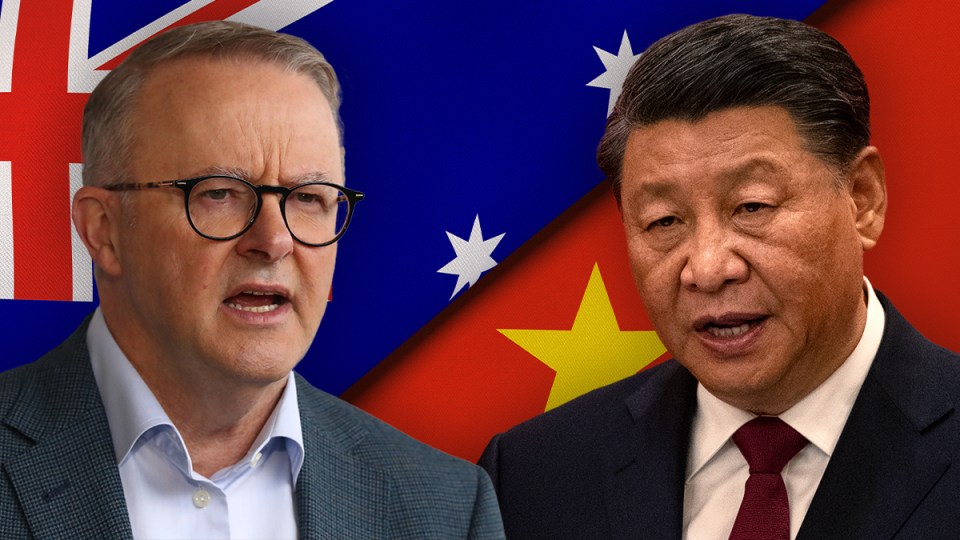


Prime Minister Anthony Albanese’s meeting with President Xi Jinping today is a positive signal.
Not because it revives either the complacency or overconfidence that once characterised our approach to the relationship, but because it reflects an opportunity for a more deliberate and disciplined approach to engagement.
With a face-to-face meeting with US President Donald Trump still pending, the timing of this week’s visit to Beijing carries added weight.
The Trump meeting will come in time, but regional developments aren’t on hold while we wait.
After years of disruption, the China visit presents an opportunity to assert Australia’s interests, support our exporters, and gain clearer insight into the region’s most consequential economy.
Trade and business are central to this trip. Alongside high-level political talks in Beijing, Albanese will co-host a CEO roundtable with Premier Li Qiang and visit commercial hubs in Shanghai and Chengdu.
Australian business leaders from key sectors will be there, not to relive the past, but to assess how we move forward in a more complex and contested environment.
Strengthening trade and investment links is critical if Australian businesses are to regain a footing and confidence in the Chinese market.
The risk now is one of misinterpretation. In public debate, there is a tendency to frame interacting with China as either a capitulation or choosing sides. It should be neither. Engaging with China doesn’t mean betting the farm. It means showing up with discipline, purpose and clarity.
For years, Australia’s trade strategy leaned heavily on China. At one stage, more than 40 per cent of our exports flowed to this single market.
When that access was disrupted by trade bans in 2020, sectors such as wine, barley, coal, and lobster bore the brunt. It was a sharp reminder of the vulnerabilities that come with economic concentration.
This forced a rapid reassessment, pushing many firms to find alternative destinations for their goods. That shift was painful but also an overdue rebalancing of market risk.
China will remain Australia’s largest trading partner for the foreseeable future. Ignoring that reality doesn’t insulate us from risk. It blinds us to it.
Commercial and geopolitical complexity can only be managed from a position of understanding, and that requires being in the room not watching from the sidelines.
Diversification is not about shutting off from existing markets. It is most effective when paired with informed, ongoing presence – eyes open.
It is also a mistake to reduce the relationship to a binary choice between values and interests. Australia can, and must, uphold its principles and objectives while conducting mature, commercially meaningful ties with China. Consistent presence gives us more leverage, not less.
What Australian businesses need now is predictability, not just in market access but in strategy and policy settings, especially at a time when Washington’s sweeping tariffs present the opposite.
Companies making long-term decisions need confidence that the government will support constructive commercial ties while continuing to back diversification into other key markets.
That means approaching South-East Asia and India not as substitutes for China but as part of a broader strategy to build resilience. Expanding our footprint across the region supports a more balanced and sustainable economic future.
Disengagement carries its own costs. When our diplomatic and ministerial channels were frozen, Australia lost valuable access and insight.
Diplomacy does not operate in a vacuum, and others stepped in to fill market gaps and deepen ties. Asia is not waiting for Australia to resolve its discomfort. Across the region, countries are managing complexity in their own way.
Japan, South Korea, India, and Indonesia are all advancing pragmatic strategies that reflect their national priorities and enhance their influence. Australia must do the same.
This week’s meeting in Beijing must be a step towards more strategic and informed engagement grounded in Australia’s interests. It is a vital part of managing one of our most complex and consequential relationships based on strategy, not sentiment.
We should not confuse distance with strength. Managing our relationship with China requires staying engaged, not staying away.
Leigh Howard is CEO of Asialink Business at the University of Melbourne










